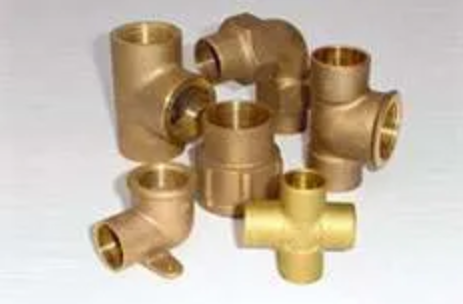Manufacturing depends critically on non-ferrous component production in sectors including automotive, aerospace, electronics, and more. Selecting the appropriate partner for your production needs is a crucial choice that will greatly affect the quality, cost, and general success of your project. This blog looks at the key factors to consider while choosing a non-ferrous manufacturing site.
Knowledge and Experience: Expertism
The foundry’s knowledge and experience in handling non-ferrous metals is a crucial factor to consider. Different alloys—aluminum, copper, zinc, and magnesium—need particular knowledge and expertise for good manufacturing. Therefore, it is imperative to assemble a crew of seasoned metallurgists and specialists and a team with a track record in managing similar projects.
Tools and Equipment in Technology
The degree of quality and efficiency of the production process is largely influenced by technological capacity and tools. It is crucial whether the facility boasts modern machinery like cutting-edge quality control tools, high-performance melting furnaces, and innovative die casting machines. Modern technology guarantees accuracy and consistency in component manufacturing, which leads to outstanding outcomes and customer satisfaction.
Verification and Quality Control
Quality control takes a front-stage role in non-ferrous foundries. Ensure the plant follows rigorous quality control standards throughout the manufacturing process. Search for certifications proving the dedication to upholding high standards, including ISO 9001 or another industry-specific accreditation.
Prototyping And Customization Powers
Every project is really different; hence, it is important to be able to offer customizing tools and complete prototype capabilities. A foundry can help to be resoundingly successful if you have a modern facility that can easily meet particular needs and provides cutting-edge prototyping services for exact testing and rigorous validation. This degree of devotion to quality and meticulous attention to detail will enable you to boldly start your road towards outstanding performance and above all expectations.
Material Traceability and Resourcefulness
Regarding non-ferrous, it is quite crucial to know exactly where and when raw materials come from. Inquire about the way the institution sources its materials to be sure they follow high standards. Furthermore, evaluating their capacity to offer total traceability for the resources consumed in your project will help you to have trust in the general sustainability and quality of your activities.
Lead Times and Manufacturing Capacity
Examining the facility’s production capacity carefully will help you to make sure it can satisfy the volume criteria of your project. To find out whether the tools, machinery, and personnel you now have fit your requirements, consider things like To ensure prompt delivery of your components, also ask about lead times and manufacturing schedules. This will enable you to keep on target and prevent any needless delays that can compromise the success of your project.
Sustainable and Environmental Methods
It is imperative to ask more thorough questions regarding the environmental policies of the institution as sustainability is becoming increasingly important in our civilization. Search for a strong will to apply environmentally friendly solutions, including sustainable materials and energy-efficient technologies. Furthermore take into account their waste-reducing techniques, which significantly help to lower the environmental impact: composting and recycling programs.

